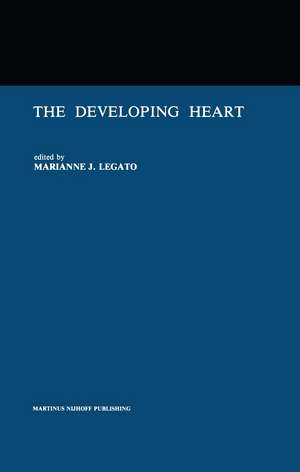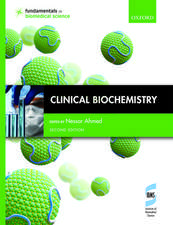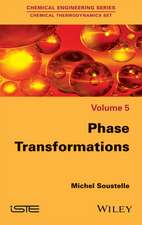The Developing Heart: Clinical Implications of its Molecular Biology and Physiology
Editat de Marianne J. Legatoen Limba Engleză Paperback – 20 oct 2011
| Toate formatele și edițiile | Preț | Express |
|---|---|---|
| Paperback (1) | 938.49 lei 43-57 zile | |
| Springer Us – 20 oct 2011 | 938.49 lei 43-57 zile | |
| Hardback (1) | 950.03 lei 43-57 zile | |
| Springer Us – 29 noi 1984 | 950.03 lei 43-57 zile |
Preț: 938.49 lei
Preț vechi: 1144.50 lei
-18% Nou
Puncte Express: 1408
Preț estimativ în valută:
179.58€ • 187.97$ • 149.47£
179.58€ • 187.97$ • 149.47£
Carte tipărită la comandă
Livrare economică 31 martie-14 aprilie
Preluare comenzi: 021 569.72.76
Specificații
ISBN-13: 9781461338369
ISBN-10: 1461338360
Pagini: 284
Ilustrații: XXIII, 256 p.
Dimensiuni: 155 x 235 x 15 mm
Greutate: 0.4 kg
Ediția:1985
Editura: Springer Us
Colecția Springer
Locul publicării:New York, NY, United States
ISBN-10: 1461338360
Pagini: 284
Ilustrații: XXIII, 256 p.
Dimensiuni: 155 x 235 x 15 mm
Greutate: 0.4 kg
Ediția:1985
Editura: Springer Us
Colecția Springer
Locul publicării:New York, NY, United States
Public țintă
ResearchDescriere
Heart disease, despite recent improvements, continues to be the single most im portant cause of death and disability in the United States. It is estimated that the direct cost of medical care for cardiovascular disease is $6 billion dollars per year. Data compiled by the National Center for Health Statistics reveal a dramatic de cline in deaths from cardiovascular disease in the United States (greater than 20% since 1968). This phenomenon has been the subject of in-depth study. It is clear that the decline is real and not a statistical artifact. The decrease in mortality has been noted in all sections of the country, though the onset and rate of decline varies in different regions of the country. Both primary prevention, through changes in risk factors, and basic and applied research leading to earlier recognition and im proved treatment have contributed to the decline. They do not fully explain the decline. Further research is needed to clarify this issue. Clinical cardiologists have been exposed to a veritable explosion of new knowl edge of mechanisms of cardiovascular disease, development of new improved non-invasive diagnostic techniques, and the pharmacodynamics of agents affect ing the cardiovascular system. This new knowledge results from contributions made by individuals from diverse disciplines including cellular and molecular bi ologists, geneticists, hematologists, cardiologists, and cardiovascular surgeons.
Cuprins
Ultrastructural changes in postnatal development of the cardiac myocyte.- Electrophysiology of the fetal and neonatal heart.- The development of the electrocardiogram.- The differentiation of the Purkinje fibers in the mammalian heart — comparisons with the ordinary myocytes.- Models of cardiac development: transplants, organ culture, cell dispersion, and cell culture.- Calcium exchange in the developing myocardium.- Regulation of contractility in developing heart.- Isomyosin shifts in normal and induced cardiac growth.- Developmental and adaptive changes of atrial isomyosins.- The role of protein synthesis and degradation in cardiac growth.- Ontogeny of peripheral blood vessels.- Hypertension in the young.- Coronary atherosclerosis — extension of developmental processes beginning in infancy.














